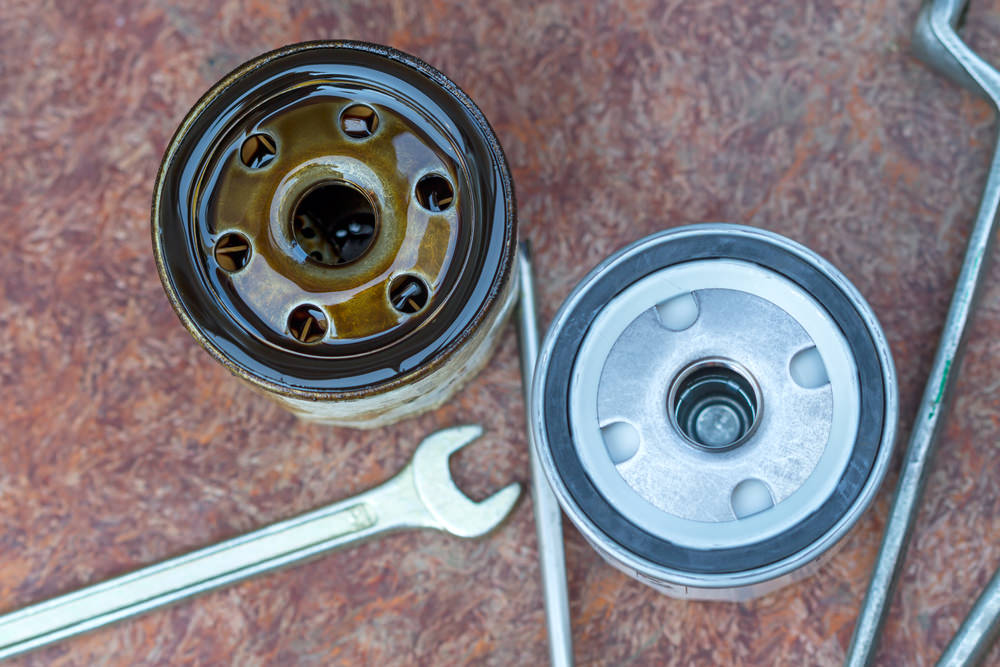

At some point during your time as a vehicle owner, you’ve likely had your oil filter changed, probably at the same time as an oil change. Few people give this minor maintenance more than a second thought. After all, it’s just an accepted fact that oil filters get dirty over time and eventually need to be swapped out with a new one. For those with more inquisitive minds about how things work, they might ask how an oil filter gets dirty in a closed engine lubrication system, and where does the dirt on oil filters come from?
The quick answer is that the oil itself is the cause of oil filter dirt. Dirty oil enters the filter, the filter removes any contaminants, and clean oil then makes it to the engine. That’s not a particularly satisfying answer, however, when you take into account that the oil circulates through the filter over and over. In theory, after the first pass through the oil filtering system, there should be no further dirt on oil filters. That’s how things would work in ideal environments, but a vehicle isn’t as pristine as that.
Here are some common ways grit and grime make their way into the engine’s system and, ultimately, on the filter:
Bypass valve: The oil filtration system in your vehicle doesn’t always remain closed. There are times, such as when you first start your vehicle, when your oil is too cold and thick to pass through your oil filter. In this case, the bypass valve opens to allow unfiltered oil to make its way to the engine for proper lubrication until things warm up and run smoothly again. At this time, however, contaminants present in the crankcase can slip into the oil. These contaminants will circulate until the filter catches them on the next pass through and is a major cause of oil filter dirt.
Engine surfaces: Even with the best lubrication system, bits of metal and carbon from the internal surfaces of the engine can flake off as a result of metal-to-metal contact. As with the contaminants that sneak in by way of an open bypass valve, the oil filter usually catches them at some point during circulation before they cause any real harm. Over time, however, this results in a dirty oil filter that needs to be replaced.
Byproducts of combustion: When fuel burns to be converted into the energy that runs your engine, there are chemical byproducts from that process. These byproducts greatly resemble ash and stick to the walls of your engine’s cylinders. So, when oil circulates through these areas, it picks up that ash and ends up deposited on your oil filter. This is the primary cause of oil filter dirt.
Oil: With a seemingly never ending cycle of heating and cooling and moving here and there, your engine’s oil goes through some chemical changes as well. Over time, these changes result in the degradation of the oil itself, forming unwanted bits and pieces that can ultimately cause dirt on oil filters. When this happens, not only should the filter be replaced but also the oil.
Now that you understand how dirt makes its way into your oil filter, you may also better see the importance of keeping both the oil in your engine and the oil filter clean for your vehicle to run most efficiently. If there is still any confusion about what causes a dirty oil filter or you suspect your oil or filter need to be changed, feel free to consult one of our certified mechanics. They can answer any questions you have about your oil filtration system and diagnose if your vehicle’s oil and oil filter are working properly.



